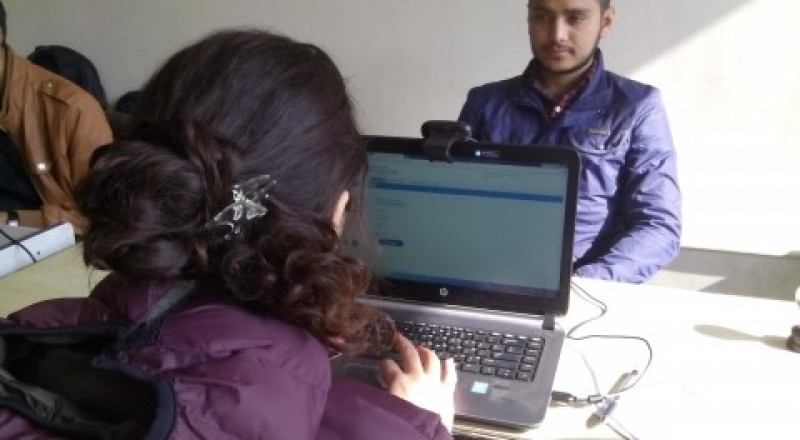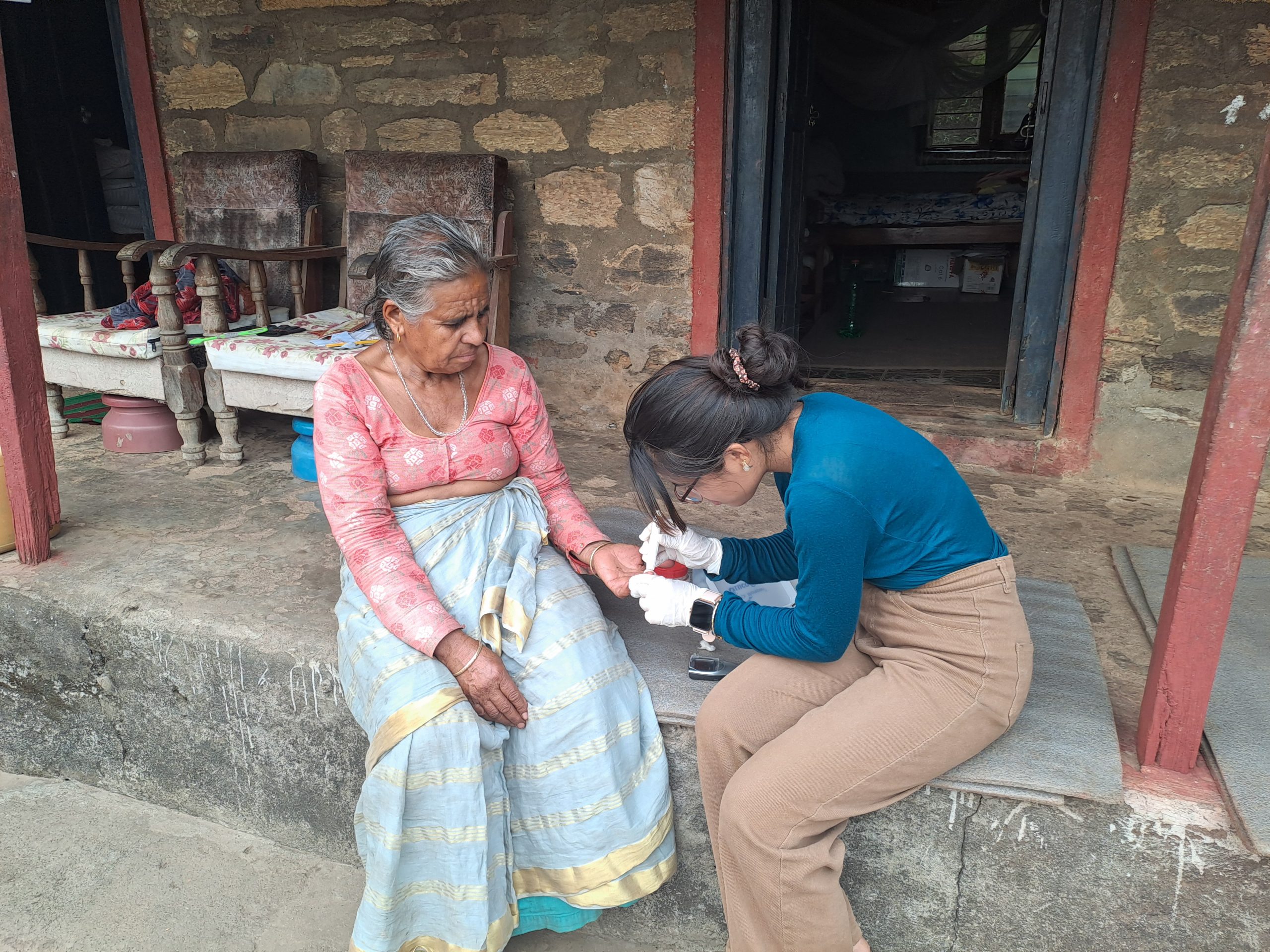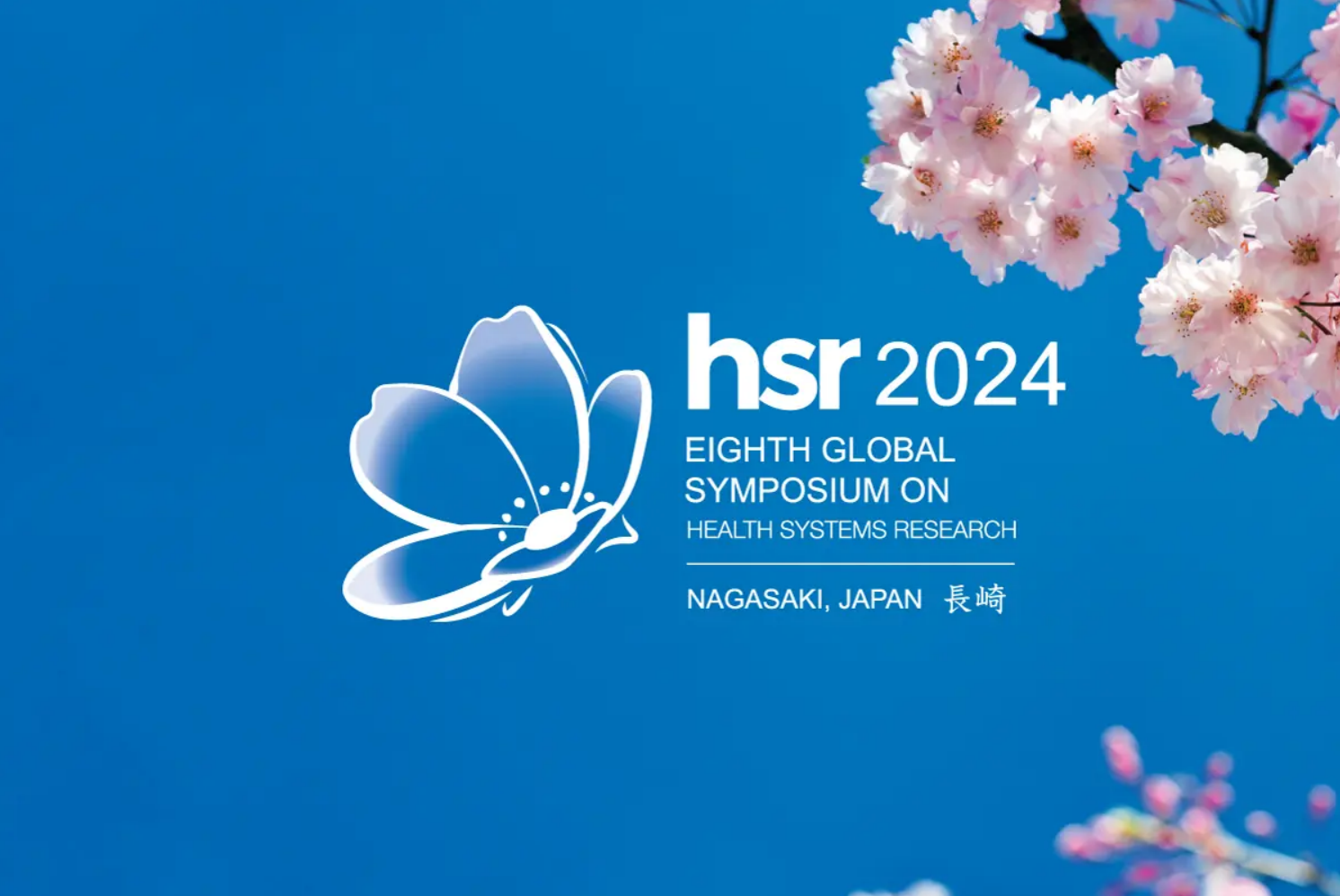Despite making significant strides in health services, Nepal continues to battle with disparities, particularly in terms of equitable health outcomes, indicating a significant gap toward achieving Universal Health Coverage (UHC) targets. Regardless of the efforts, the country faces challenges in ensuring equal access to quality healthcare services for all its citizens.
As we know evidence is key to policy making, investing in research, and cultivating culture of sharing evidence is crucial to informing the country’s policy and practices. In addition, the willingness of government actors and institutional arrangements is a pre-condition for the uptake of the evidence to ensure that policies are directed towards equitable distribution of resources and delivery of healthcare services throughout the country. To foster evidence informed decision-making practice, Nepal Health Research Council (NHRC) has been annually hosting the National Summit of Health and Population Scientists. This year’s 10th NHRC summit was held from April 10-12, 2024 and the theme was “Advancing Health and Population Research and Innovations: Achieving SDGs,”.
The summit brought together key professionals representing diverse organizations in Nepal along with international experts, researchers, policymakers, funding agencies, and practitioners sharing and facilitating the exchange of best practices, knowledge, experiences, and evidence regarding health research.
The summit featured 73 oral presentations and 248 poster presentations, 3 panel discussions, 5 plenary sessions, and 13 parallel sessions, covering a range of topics such as sexual and reproductive health, evidence-based medicine, clinical practice and trials, climate change, environmental health, population, migration, aging, mental health, health and equity, health system, infectious disease, biomedical research, digital health, and telemedicine, efficient and responsive health, resilient health system for combating various diseases, emergency preparedness, non-communicable disease and injuries and wider determinants of health. The evidence shared in the conference focused on the latest discoveries, innovative approaches, and best practices in health research.
HERD International, a research and development organization, dedicated to addressing community needs, system priorities, and emerging health and development issues, contributed significantly to the event by sharing latest evidence generated from various study. Their presentations covered a range of themes, with 10 oral presentations and 7 poster presentations. Our contribution to the generation of evidence presented in the summit are summarized below.
From disparity to dignity – A narrative of Nepal’s Health systems on equity
Dr. Sushil Chandra Baral, Managing Director at HERD International, shared a comprehensive picture of existing gap in health outcomes in Nepal in a plenary session on Health and Equity. In his presentation titled “From disparity to dignity – A narrative of Nepal’s health systems on equity”, stressed the need for high-quality, targeted interventions alongside increased coverage. Despite political commitment, inequalities persist, hindering universal healthcare and sustainable development goals. Political parties´ commitments and policy provisions have addressed the equity in health to some extent, however, evidence suggests limited gain in equity when we look at health outcome,” he said, “Mainstreaming equitable healthcare requires collaboration among government and healthcare providers to ensure access for all citizens, regardless of background or location”.
Challenges and opportunities in health financing reforms and priories
Mr. Achyut Raj Pandey, Senior Research Fellow at HERD International presented “Health Financing Reforms and Priority Setting for Accelerating Progress in the Path to Universal Coverage: Challenges and Opportunities in Federal Context”. His presentation focused on the current status of Universal Health Coverage and the need for health finance reform in Nepal. He highlighted key area of reforms in Nepal’s health system: harmonizing social security interventions/programs, investing more effectively, investing in the quality of care, revisiting social security schemes, increasing the budget, providing more flexibility for local government services, institutionalizing priority-setting processes, and shifting towards evidence-based policymaking. He emphasized that these reforms necessitate coordination among the three tiers of government and other stakeholders from both health and non-health sectors.
Lessons from development of capacity assessment framework for Health Policy and System Research Institutions (HPSRIs)
HERD International’s Research Officer, Mr. Bipul Lamichhane, shared insights from a capacity assessment framework developed to enhance Health Policy and System Research Institutions (HPSRIs) as part of the Forum for Advancing Better Health Policy and System Research Institutions (FAB-HPSRI) initiatives. In his presentation titled “Assessing Capacity of HPSRIs in Nepal: Framework, Lessons Learned, and Future Directions,” he identified key challenges within the HPSR ecosystem at the system, organizational, and individual levels. The framework, focusing on technical competency, organizational management, evidence-to-policy processes, and networking, aims to measure organizational capacity. A major takeaway was the complexity of stakeholder involvement in HPSR, highlighting the need for organizations to enhance expertise in stakeholder engagement. Additionally, the interdisciplinary nature of HPSR complicates the development of standardized competency lists, requiring customized approaches to capacity assessment tailored to specific organizational structures and research contexts.
Inequality in HIV prevention knowledge and discriminatory attitudes towards people living with HIV among Nepali youths
Mr. Bikram Adhikari, Data and Monitoring Officer at HERD International, presented on a research topic entitled “Decomposing inequality in knowledge about HIV prevention and discriminatory attitudes towards people living with HIV among youth aged 15-24 years in Nepal”. He highlighted a decline in HIV prevention knowledge and a rise in discriminatory attitudes among both males and females. He revealed that the proportion of youths with HIV prevention knowledge has decreased in richest groups, and increased in the poorest groups, with both groups showing reduced discriminatory attitudes. The inequality in HIV prevention knowledge between 2011 and 2022, and discriminatory attitudes between 2016 and 2022 among youth has reduced, with wealth and education being the major contributing factors. Inequalities in HIV prevention knowledge and discriminatory attitudes towards PLHIV can hinder government efforts to reduce HIV stigmatization and achieve universal access to HIV care and treatment. Therefore, he suggested that the government collaborate with schools and communities to develop HIV-related educational interventions for youth and integrate them into the curriculum.
Health Facilities Readiness to Implement Standard Precautions for Infection Prevention and Control
HERD International’s, Knowledge Management Officer Mr. Saugat Pratap KC presented on “Health Facilities Readiness to Implement Standard Precautions for Infection Prevention and Control (IPC) in Nepal: A Secondary Analysis of Nepal Health Facility Survey 2021”. The major aim of the study was to assess the readiness of health facilities to implement standard precautions for Infection, IPC across eight service delivery domains and to determine the association of the readiness of health facilities to implement standard precautions for IPC with the characteristics of health facilities. He revealed the finding that health facilities were largely prepared to implement conventional procedures for infection prevention although there is always room for improvement. The health facilities from Bagmati, Gandaki, and Karnali, as well as those engaging in quality assurance activities and having a framework for reviewing client opinions, scored higher on the preparedness scale to adopt standard precautions for IPC. The findings from this study are useful for stakeholders and policymakers make informed decisions to enhance overall IPC status across Nepal.
Health System Resilience Capacity in Federal Context of Nepal
Mr. Shreeman Sharma, Research Uptake Manager at HERD International presented on “Health System Resilience Capacity in Federal Context of Nepal: Findings from a Mixed Method Study”. This study is aimed at mapping the resilience of the local health system. The mixed method study focuses on Kapilvastu municipality as the learning site. He stated that there was room for development in several areas, including community-level surveillance mechanisms, regular information system data usage and accuracy, and human resources for health. He highlighted those certain initiatives, such as expanding the fiscal space for decision-making and redesigning the local health system’s organogram, are outside the scope of local governments. Furthermore, he added that most health system functions are concurrent and interdependent, and the local health system cannot be resilient independently. Also due to its dependence upon sectors, such as education, the environment, and infrastructure development, the health system can one resilient if it works based on multi-sectoral approach.
Status of child marriage among adolescent girls in Nepal
Mr. Bishnu Prasad Dulal, lead – Information System and Populations Service at HERD International presented on “Status of child marriage among adolescent girls in Nepal”. His study aimed at identifying disparities in child marriage and bridge the information gap for targeted intervention. He analyzed data from the population and housing census 2021 and then calculated the percent of early-age (<18 years) marriage among adolescent girls (10-20) stratified by ecological belt, province, district, and local level type of Nepal. The study found that child marriage is one of the major problems in Nepal and is commonly practiced in the Rukum-east and Salyan districts as well as several other districts in Karnali and Madhesh provinces. To address child marriage and protect the rights and welfare of vulnerable adolescent girls, targeted interventions are essential, his finding recommended.
Addressing wider determinants of Health and Accelerating Progress Toward Health Equity
HERD International’s Senior Research Fellow Mr. Achyut Raj Pandey presented on “Addressing Wider Determinants of Health and Accelerating Progress towards Health Equity”. He discussed about the burden attributable to wider determinants like environment and climate change, agriculture, food production and nutrition, anti-bacterial resistance, work conditions and occupational risk and disaster and displacements and pointed out that it has been critical to address these challenges. According to him, citizens better health outcomes cannot be ensured by the health sector acting alone considering its dependence on wider determinants, and multisector initiatives are needed that take health into account in all policies. He added that the municipal system, which unites all sectors under the municipal leadership, presents an opportunity for intersectoral health initiatives.
Addressing gender norms and power dynamics of FCHVs
Ms. Abriti Arjyal, Research Manager: Qualitative and multidisciplinary science at HERD International, presented on “Participatory Action Research for Female Community Health Volunteers (FCHVs) in Nepal.” The study focused on using participatory methods, including filmmaking to address gender norms and power dynamics. Despite initial challenges in clarity and stakeholder involvement, the approach empowered FCHVs to advocate for change effectively. Filmmaking provided FCHVs with tools to share their experiences, although producing high-quality footage remained a challenge. The participatory approach facilitated collaboration among FCHVs and stakeholders, leading to the identification of local issues and solutions. While flexible and adaptable, it required time and effort to promptly involve stakeholders and the community. Overall, the research highlighted the importance of community engagement and capacity-building initiatives for empowering FCHVs and promoting gender equality within healthcare systems.
Enablers and inhibitors of multisector coordination in Nepal
Dr. Ghanshyam Gautam, Lead-Health Economics, Systems and Social Protection at HERD International presented on “Enablers and inhibitors of multisector coordination: perspectives from five provinces in Nepal”. This study intended to assess the current landscape, including facilitators, challenges, and opportunities of multisectoral coordination at the municipal level in the federalized context of Nepal. This was a qualitative-explorative study conducted across Gandaki, Lumbini, and Karnali involving twenty-five key informant interviews. He stated that at local levels, multisector coordination for planning and activities occasionally took place and only when needed rather than as a regular practice. He explained that while sectoral collaboration within and outside municipal offices worked well during the yearly planning and program creation process, there was a lack of regular interactions and meetings within local governments. He mentioned that stakeholders had personal connections with relevant departments, but formal sharing and coordination mechanisms were inconsistent. He further added that some programmatic cooperation areas like nutrition showed potential, however, local governments couldn’t take the lead due to a reported lack of leadership commitment, capacity, and motivation.
Conclusion
HERD International’s engagement at the summit underscores its dedication to evidence-informed decision-making and its role as a key contributor to shaping health policies and practices in Nepal. By sharing the latest evidence generated from research studies and initiatives, HERD International contributes to advancing the country’s progress towards achieving UHC targets and SDGs. Investing in research and cultivating the culture of evidence-sharing and collaborating with stakeholders is crucial to addressing health disparities and promoting equitable access to quality healthcare services for all citizens in the country.
The summit featured 7 posters from HERD International
“Co-Designing Urban Health Data Hub: A Multi-Phase Approach for Digital Transformation in an Urban Municipality of Nepal” , Dr. Sampurna Kakchapati and team.

“Exploring the nature of health news in Nepali media: a retrospective study of four national newspapers “, Ms. Pratistha Dhakal and team.

“Unveiling health system resilience capacity: An Assessment of Urban Infrastructure in Kapilvastu Municipality”, Mr. Subash Bhattarai and team.

“Co-Creation of capacity assessment framework for health policy and system Research institutions: Experience and lessons learnt from a multi country study”, Mr. Bipul Lamichhane and team.

“Drivers of anti-microbial resistance within the communities of Nepal from one health perspective: a scoping review”, Ms. Ayuska Parajuli and team

“Towards building resilient health systems: Insights from embedded health policy and system research in Nepal’s decentralized context”, Mr. Anil Dhungana and team.

“Policy context and climate actions for a climate resilient health system: evidence from two municipalities in Nepal”, Mr. Bharat Raj Bhatta and team.

















Comments (0)
No comments found.